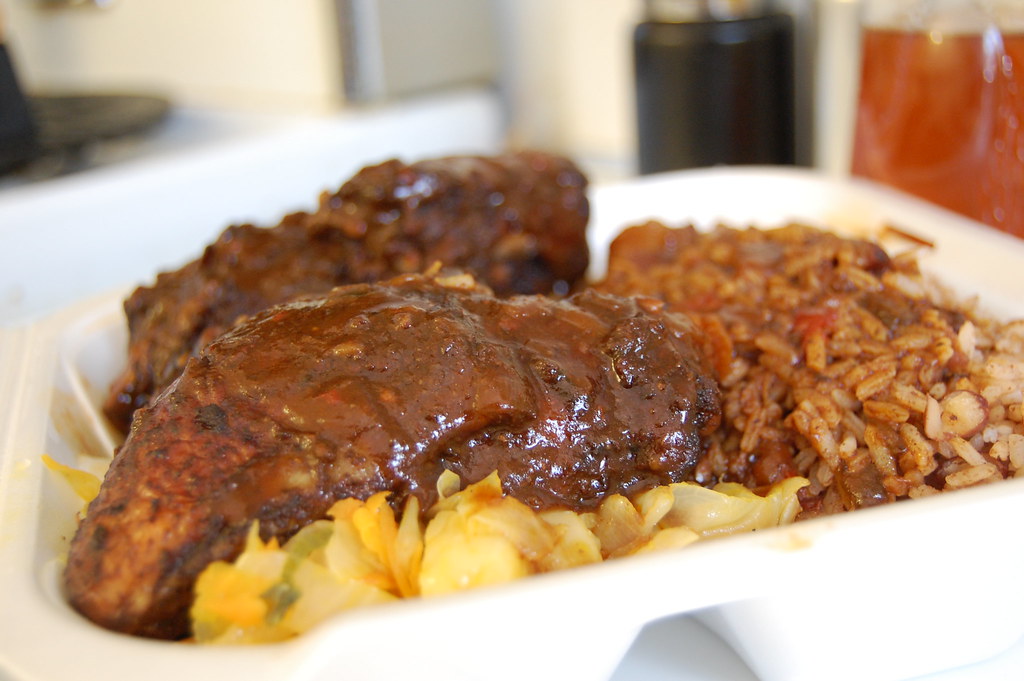Jerk chicken, with its smoky, spicy and aromatic appeal, is one of Jamaica’s most iconic dishes, beloved worldwide for its bold flavours and rich history.
This method of seasoning and cooking meat has deep roots that trace back to Jamaica’s indigenous people, the Taino, and their interaction with African influences brought by enslaved peoples. From its origins as a survival food to its celebrated status today, jerk chicken embodies the resilience and creativity of Jamaican culture.
The word jerk is thought to originate from the Spanish word charqui – meaning dried meat, which evolved into the English jerky. However, the preparation of jerk meat was first practiced by the Taino people, Jamaica’s original inhabitants, who developed a unique cooking method of slowly smoking meat over pimento wood. The Taino seasoned the meat with native spices and herbs and cooked it in underground pits, a technique that not only preserved the meat but infused it with rich, smoky flavours.
The arrival of enslaved Africans in Jamaica during the 17th century added new layers to this traditional cooking style. They used local ingredients such as Scotch bonnet peppers, thyme, scallions and allspice berries (from the pimento tree) to create the flavourful, fiery seasoning that defines jerk as we know it today. The result was a marinade bursting with heat, depth and complexity, perfectly complementing the smoky cooking process.
Cooking jerk chicken was more than just a means of survival; it became an integral part of their community gatherings, celebrations and ceremonies. Over time, the method spread across Jamaica, and by the 20th century, the dish began to gain attention beyond, becoming a popular street food in cities like Kingston and Montego Bay.
Local vendors, known for their homemade marinades and special grilling techniques, served jerk chicken from roadside stands and beach shacks, spreading its popularity far and wide. As tourism grew, jerk chicken became synonymous with Jamaican hospitality and the island’s vibrant culinary scene.
Today, jerk chicken remains a staple of Jamaican culture, enjoyed at family gatherings, festivals, and even fine dining establishments worldwide. While traditionalists maintain the authentic flavours using pimento wood and Scotch bonnet peppers, modern variations incorporate everything from barbecue grills to ovens, adapting the dish for different palates and cooking methods. Many countries now produce their own jerk seasonings, but the essential elements – heat, smoke, and spice – remain at its core.






Click here to change your cookie preferences